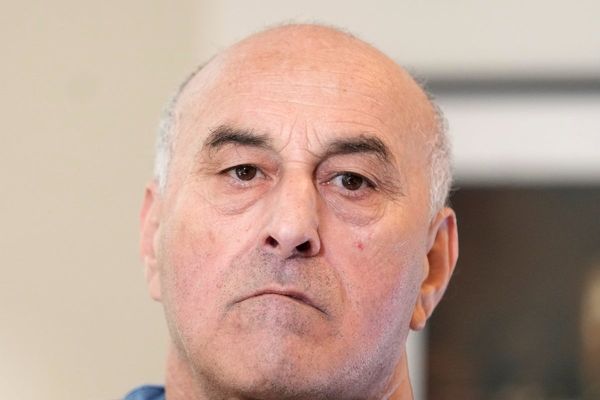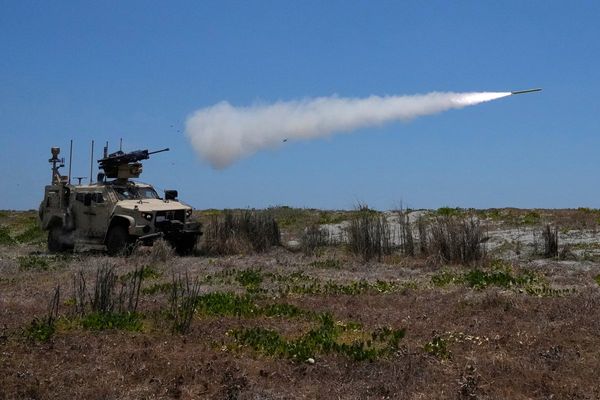India’s parliament on Friday passed a resolution allowing prime minister Narendra Modi’s federal government to take direct control of the strife-torn northeastern state of Manipur.
Early on Friday morning, parliament ratified the constitutional provision, known as president’s rule, after a late-night debate in the Rajya Sabha (upper house) that began at 2.36am. The scheduling decision drew sharp criticism from the opposition. The imposition of so-called president's rule on an Indian state means it will be governed directly by the federal government through the federally-appointed governor.
The discussion on the violence that gripped Manipur for nearly two years of ethnic unrest, followed the lower house’s approval of the resolution a day earlier, also in the early hours, capping two days of discussions.
Federal home minister Amit Shah introduced the statutory resolution after the Rajya Sabha cleared a key bill governing the Muslim endowment, following a marathon discussion. Eleven speakers participated in the debate before the House voted in favour of the resolution at 3.58am.
President’s rule – a constitutional provision that allows the federal government to take direct control of a state – was imposed in Manipur on 13 February, days after chief minister N Biren Singh resigned.

The state has witnessed ongoing ethnic violence since May 2023, which has killed at least 260 people and displaced around 50,000.
The clashes first began after members of a number of hill tribes including the Kuki, who enjoy protected status as minorities, protested against plans to extend that status to the Meitei community, who represent around 53 per cent of Manipur’s population. Doing so would have given the Meitei access to the same benefits and quotas in government jobs and education as the minority tribes.
Demonstrations by the Kukis led to clashes in the village of Churachandpur, some 40 miles (63km) from Imphal, at the beginning of May, before spreading out across the state in a wave of violence that shocked the nation.
Although the assembly has not been dissolved, it remains in suspended animation, allowing room for a new government to be formed without fresh elections if a majority emerges. The debate’s timing sparked sharp criticism from opposition leaders, who accused the government of sidelining the Manipur crisis.
Leader of the opposition, Mallikarjun Kharge, urged the chair of the upper house to schedule the discussion at a more suitable hour, pointing out that debate on the Waqf Bill would continue late into the night. The request was declined, prompting further objections when the Manipur resolution was finally taken up past 2am.

“Manipur is an important issue. Why don’t you work till late night for once tonight?” Mr Shah responded when opposition leaders asked for a rescheduling.
Mr Kharge opened the debate by questioning prime minister Narendra Modi’s absence from the conflict-ridden state. “I demand an inquiry and a white paper to be presented in the House. Everybody will then know what is happening in the state ... BJP has no plan in place to restore peace. They have allowed conflict to deepen,” he said, reported the Hindustan Times.
He further argued that president’s rule had not been imposed to protect Manipur’s people, but rather to safeguard the ruling Hindu right wing Bharatiya Janata Party’s (BJP) political interests. “The CM should have taken responsibility and resigned. BJP was working to save the CM and not Manipur,” said Mr Kharge, listing major incidents of violence that have plagued the state.
Responding to the opposition, Mr Shah defended the timing and intent behind the resolution.
He stated that the government delayed introducing the measure because it was still conducting separate peace talks with the warring communities. “While the House was in session, two talks have already been held. We are confident that a joint meeting with both groups will soon be held in New Delhi,” he said.
Mr Shah also addressed questions over whether the Centre had set a timeline for restoring peace. “There is a difference between Naxalism and ethnic violence,” he said, drawing a distinction between left-wing insurgency and the current conflict in Manipur.
The minister reiterated that the ongoing turmoil was sparked by a controversial 2023 Manipur High Court order directing the state government to consider granting Scheduled Tribe status to the Meitei community – a move strongly opposed by tribal groups. That order has since been set aside by the Supreme Court.

Trinamool Congress MP Derek O’Brien criticised the government for initiating the debate at such a late hour.
“Look at the irony. Discussing Manipur in the dead of the night when there are no prime time or TV channels. Look at Manipur during the day. Look at Manipur in the eye and talk to Manipur,” he said, while also urging the prime minister to visit the state.
India’s crackdown on Muslim charitable trusts sparks fears for religious freedom
Thailand ignores protests to welcome Myanmar’s junta leader
India’s top court raps state government over ‘inhuman’ bulldozer demolitions
India rejects US religious freedom report urging sanctions on spy agency
American tourist leaves can of Coke for world’s most isolated tribe and gets arrested
New 3D-printed skin could end cosmetic testing on animals, scientists say







